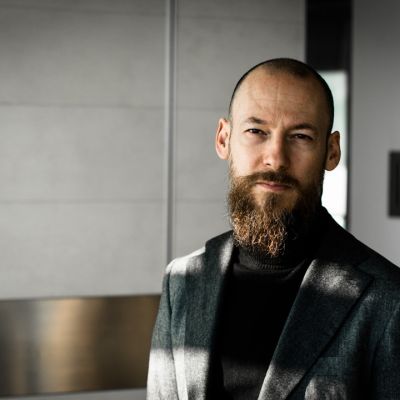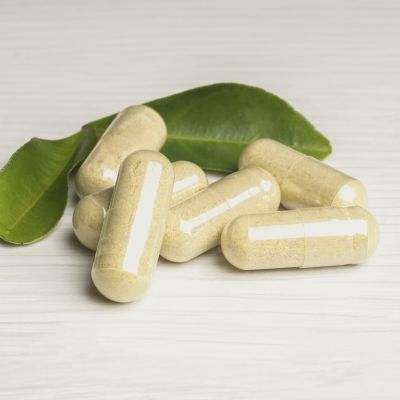Eating a well-balanced diet is important to maintaining your overall health. Did you know good nutrition is also essential for healthy hair? In many cases, the condition of your hair can be one of the first tell-tale signs of vitamin and mineral deficiencies. Check out these essential nutrients for thinning hair that can change the health (and look) of your hair.
Try These Essential Nutrients for Thinning, Brittle Hair
1. Iron Boosts Oxygen Flow to Hair Follicles
Iron is vital for the production of hemoglobin in red blood cells, which transport oxygen to your hair follicles. Without sufficient oxygen, the follicles shrink, hair strands weaken, and excess shedding may occur. Women with heavy menstrual cycles, those with anemia, or individuals on restrictive diets are particularly at risk.
Pro tip: Leafy greens, lentils, and red meat are rich sources, and pairing iron with vitamin C can improve absorption.
At HairClub, we start with the whole picture—because better hair begins with better health.
2. B Vitamins Nourish and Strengthen Hair Roots
B-complex vitamins like B6, B12, niacin (B3), and folate are deeply involved in protein metabolism, red blood cell production, and nervous system function, all of which contribute to scalp health. Chronic stress or dietary gaps can deplete these vitamins, indirectly worsening hair loss.
Sources include: whole grains, avocados, leafy greens, citrus, and eggs.
Clients undergoing EXT® or laser regrowth programs are often encouraged to support results with a B-vitamin-rich diet.
3. Biotin Nutrient Supports Thick, Resilient Hair Growth
A deficiency in biotin (vitamin B7) can result in brittle strands, increased shedding, and hair thinning along the crown. Biotin plays a role in keratin infrastructure, helping produce stronger, thicker strands that are less prone to breakage.
Best sources: egg yolks, sweet potatoes, and almonds.
While not a miracle cure, biotin is a helpful component of a broader hair health plan. We often include it in nutritional guidance post-hair analysis.
4. Zinc Aids Scalp Health and Tissue Repair
Zinc regulates sebum production, helps build hair proteins, and plays a critical role in immune function. A zinc deficiency can lead to scalp inflammation, increased breakage, and slower regrowth.
Sources include: oysters, chickpeas, beef, and pumpkin seeds.
In some HairClub clients, we’ve seen zinc supplementation help reduce scalp irritation and support healthier regrowth cycles.
5. Vitamin A Maintains Scalp Moisture Balance
Vitamin A helps the scalp produce sebum, a natural oil that moisturizes the skin and prevents hair from drying out and breaking. However, both deficiency and excess intake can cause issues: too little results in dryness; too much can trigger toxicity and hair loss.
Sources: sweet potatoes, carrots, spinach, and mangoes.
6. Vitamin C Produces Collagen for Stronger Hair
Vitamin C is an antioxidant powerhouse. It fights oxidative stress (a common driver of premature hair loss), supports iron absorption, and helps synthesize collagen, a major structural protein that strengthens the hair shaft.
Good choices: citrus fruits, red peppers, strawberries, and broccoli.
Many of our clients supplement vitamin C alongside iron to maximize results, especially if a scalp analysis shows weak or brittle strands.
7. Vitamin D3 Regulates the Hair Growth Cycle
Vitamin D deficiency has been linked to alopecia areata and telogen effluvium, as it plays a role in follicle cycling and immune regulation. Your body produces D3 through sunlight exposure, but many people are still deficient, especially in winter or with indoor lifestyles.
Food sources: fortified dairy, fatty fish, and egg yolks.
HairClub’s scalp imaging can help detect signs of telogen effluvium, which often overlaps with low vitamin D levels.
8. Omega-3 Fatty Acids Promote Shine and Strength
Omega-3s nourish the scalp, reduce inflammation, and maintain the lipid barrier that keeps your hair hydrated. Studies suggest they may also help delay follicle miniaturization by supporting the hair’s natural life cycle.
Top sources: salmon, flaxseeds, walnuts, and chia.
These healthy fats complement HairClub’s non-surgical systems like Xtrands®, which rely on strong existing hair to blend seamlessly.
9. Protein Builds Full, Healthy Strands
Hair is made primarily of keratin, a protein. Without enough dietary protein, your body will deprioritize hair growth in favor of vital functions. This can lead to telogen effluvium and dull, lifeless strands.
Top sources: eggs, Greek yogurt, lentils, and lean meats.
After identifying shedding patterns during a Hair Analysis, we often counsel clients on boosting daily protein intake to stabilize the hair growth cycle.
It’s Not Just About Nutrients
If damage and breakage make your hair look thinner, it can be extremely distressing. Learn how to protect your strands with these smart tips to prevent split ends and the appearance of thinning hair. Know that you don’t have to deal with hair loss by yourself. HairClub can help. Best of all, we are now up to 100+ locations in the US, Canada and Puerto Rico.
Book a FREE consultation today.
FAQ: Vitamins & Nutrients for Thinning Hair
What is the best nutrient for hair loss?
Iron and biotin are among the most important nutrients for hair loss. Iron helps deliver oxygen to hair follicles, while biotin supports keratin production for stronger strands.
Which deficiency causes hair thinning?
Common deficiencies linked to thinning hair include low levels of iron, zinc, biotin, and vitamin D. These can disrupt the hair growth cycle and weaken follicles.
What is the best vitamin for thin hair?
Biotin (B7), vitamin D, and vitamin C are all highly recommended for supporting hair density and growth. They help produce collagen, regulate growth, and strengthen strands.
What helps thinning hair grow back?
Eating a balanced diet rich in essential nutrients—plus considering supplementation if needed—can support regrowth. Professional treatments like HairClub’s non-surgical solutions may also help restore volume.





